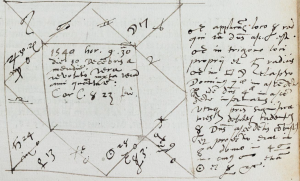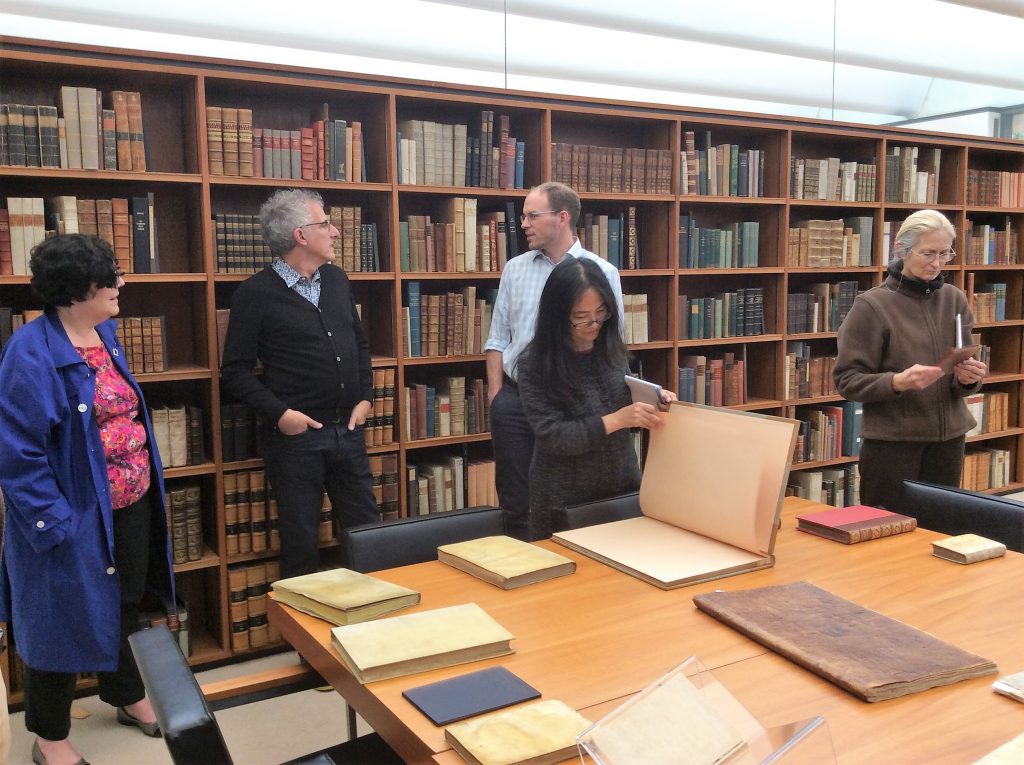Project Update: John Dee Meets Albert Einstein
Two weeks ago, a good portion of the AOR Humanities team convened at the Institute for Advanced Study in Princeton for one final meeting before we all meet in London to celebrate the end of the project! Unlike March’s meeting on Dee and his books, the only complications getting all of us in the room came from a few stray Skype outages, a welcome change from the blizzard-induced panic that marked our first group session. There’s a lot left to do before we roll out the viewer, but the meeting was an excellent chance to take stock of how far the project has come, and how best to encapsulate the many uses that Dee and Harvey found for the small subsets of books we’ve drawn from their respective libraries.
After months of transcription work, the massive amount of data from Dee’s annotated books is nearly ready for analysis. The weeks leading up to the meeting were spent ensuring that we had the best, and cleanest possible data set to send out. The culmination of that exercise was an afternoon of scribblemania, as we put our heads together to try and decipher the considerable list of illegible, questionable, or otherwise incomprehensible annotations clinging on for dear life in the margins of Dee’s books and the comment fields of our XML transcriptions.

(Cardano, Libelli Quinque, p. 182)
Some of the astrological marginalia proved the most stubborn of the lot. Cardano’s Libelli Quinque had a number of holdouts, since even knowing the language they were written in wasn’t a guarantee that they’d be comprehensible. Tony Grafton set the gold standard for conundrum cracking on the day when he extracted “Ophiuchi” from this semi-legible note in the bottom corner of Dee’s corrections to Cardano (p.229).
The rest of us then learned that Ophiuchus is a constellation, which we’re now happy to pass on to users of the viewer. Conversations like this one have played out virtually in the comment fields of our transcriptions, but having them in person is always a treat, and a great reminder of how multiple perspectives can enrich the readings of books like these.
Banishing stubborn marginalia wasn’t the only fun that we had during the trip, we also had the chance to look over the Institute’s stellar collection of rare books in the history of science, begun by Lessing J. Rosenwald. Highlights of the many wonderful books that Marcia Tucker, the Historical Studies Librarian, pulled out for us to see included an annotated and expurgated first edition of Copernicus’ De Revolutionibus, along with a newly acquired collection of Spinoza’s works, including his Tractatus theologico-politicus with not one, but three false title pages attached.
We’re now hard at work on the concept groups for the Dee corpus, which should provide a good glimpse into how differently these two men approached their books. We’re also making tweaks to the new version of our viewer, which should be out for beta testing in the next few weeks. Watch this space!


